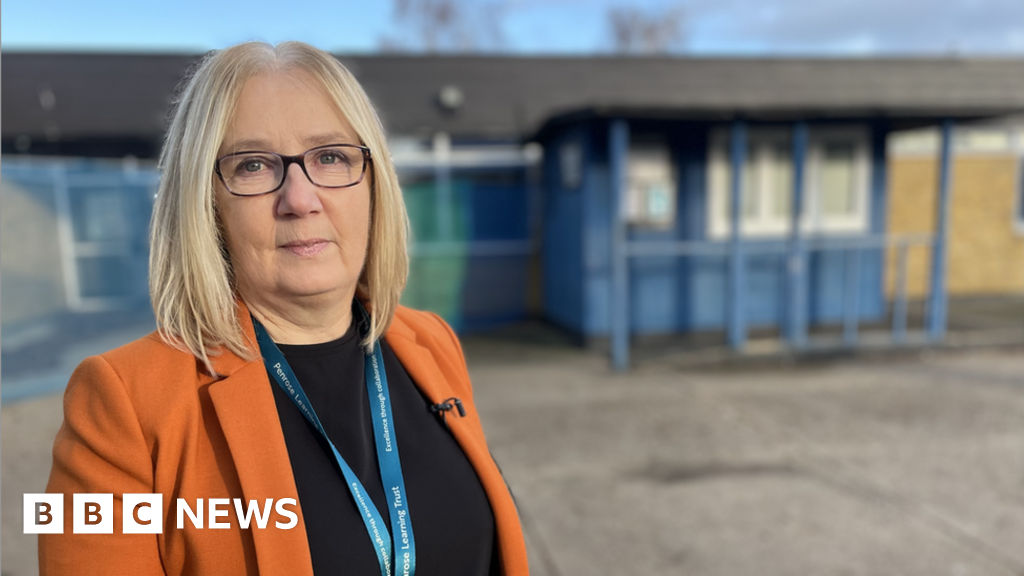Pupils at schools in England that are partially closed because of dangerous concrete will not get extra help in their exams, the government has said.
Students have been unable to access design and technology work rooms, laboratories and other specialist spaces since September due to Raac.
Some have had to switch courses months before their GCSEs and miss out on required science experiments.
School leaders have called for special consideration.
But the Department for Education (DfE) said it was "not possible to make changes to exams and assessments for only some groups of students".
A total of 231 schools in England were confirmed to have Raac, or reinforced autoclaved aerated concrete, in the most recent government list issued last month, but that list could continue to grow.
Raac is a lightweight material that was used mostly in flat roofing, but also in floors and walls, between the 1950s and 1990s. It is a cheaper alternative to standard concrete but has a lifespan of about 30 years.
However, this short lifespan means its use in permanent buildings has caused problems.
Over the summer, a Raac panel that would have been classed as "non-critical" collapsed at a school in England, prompting the closures.


